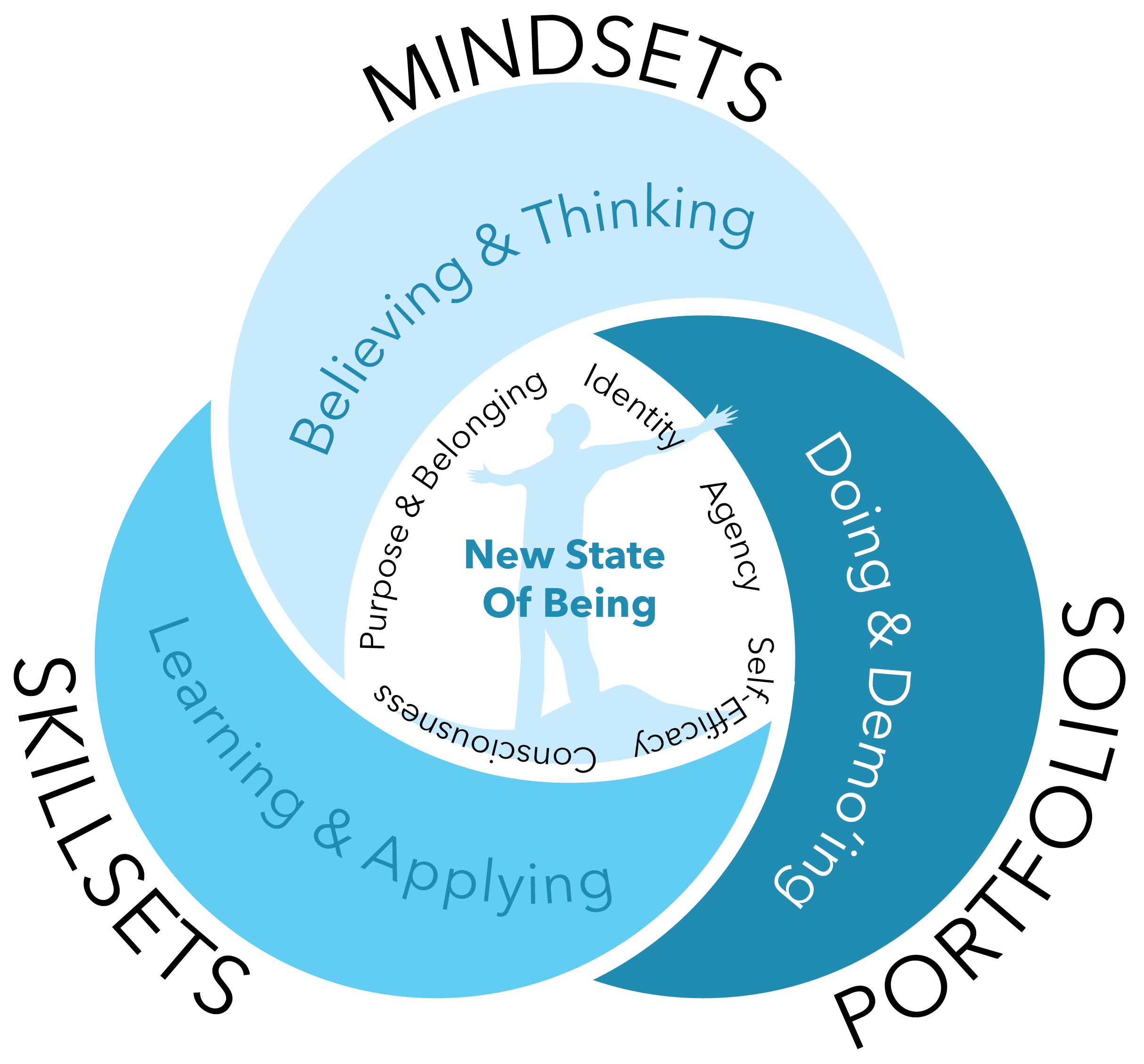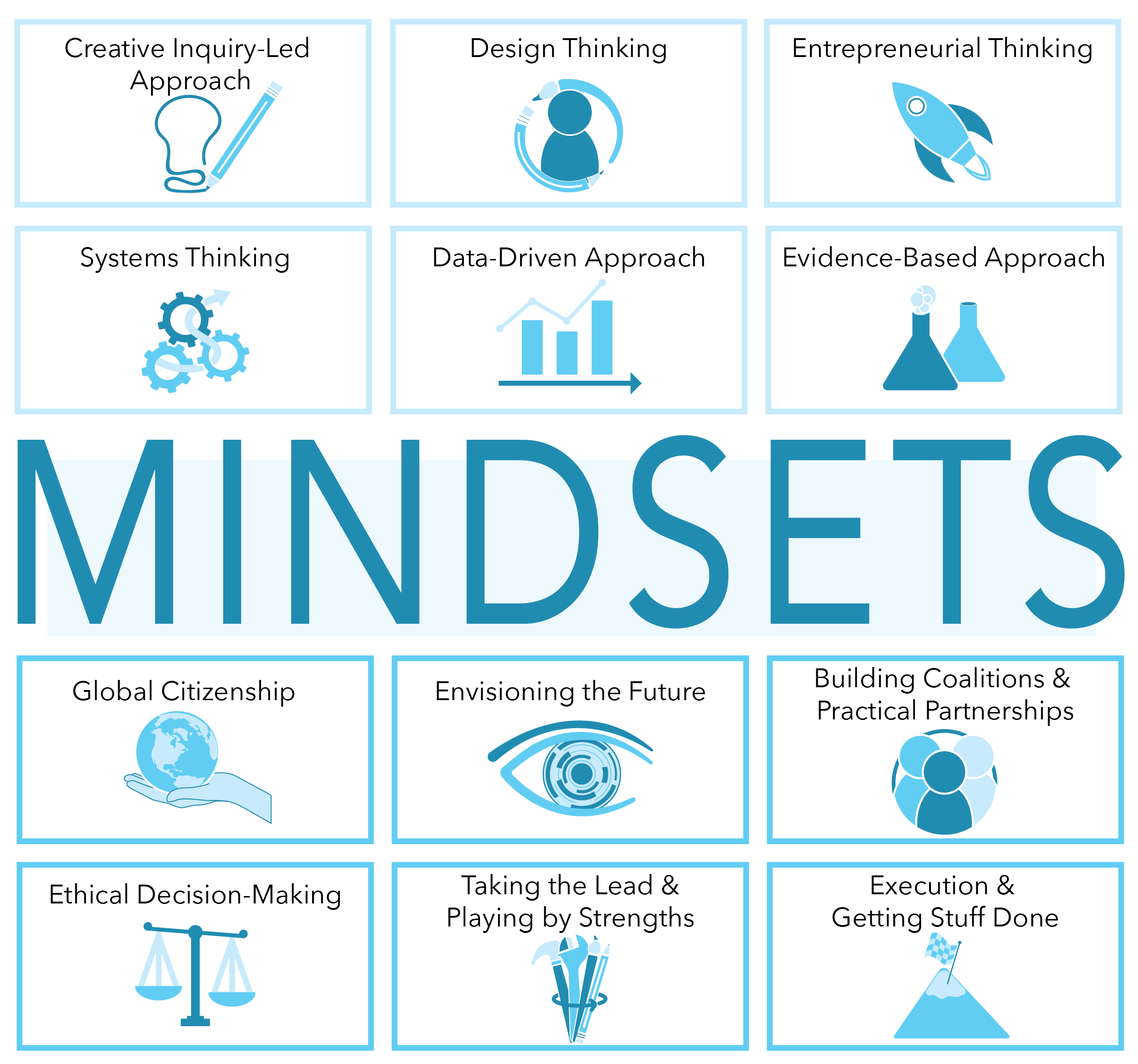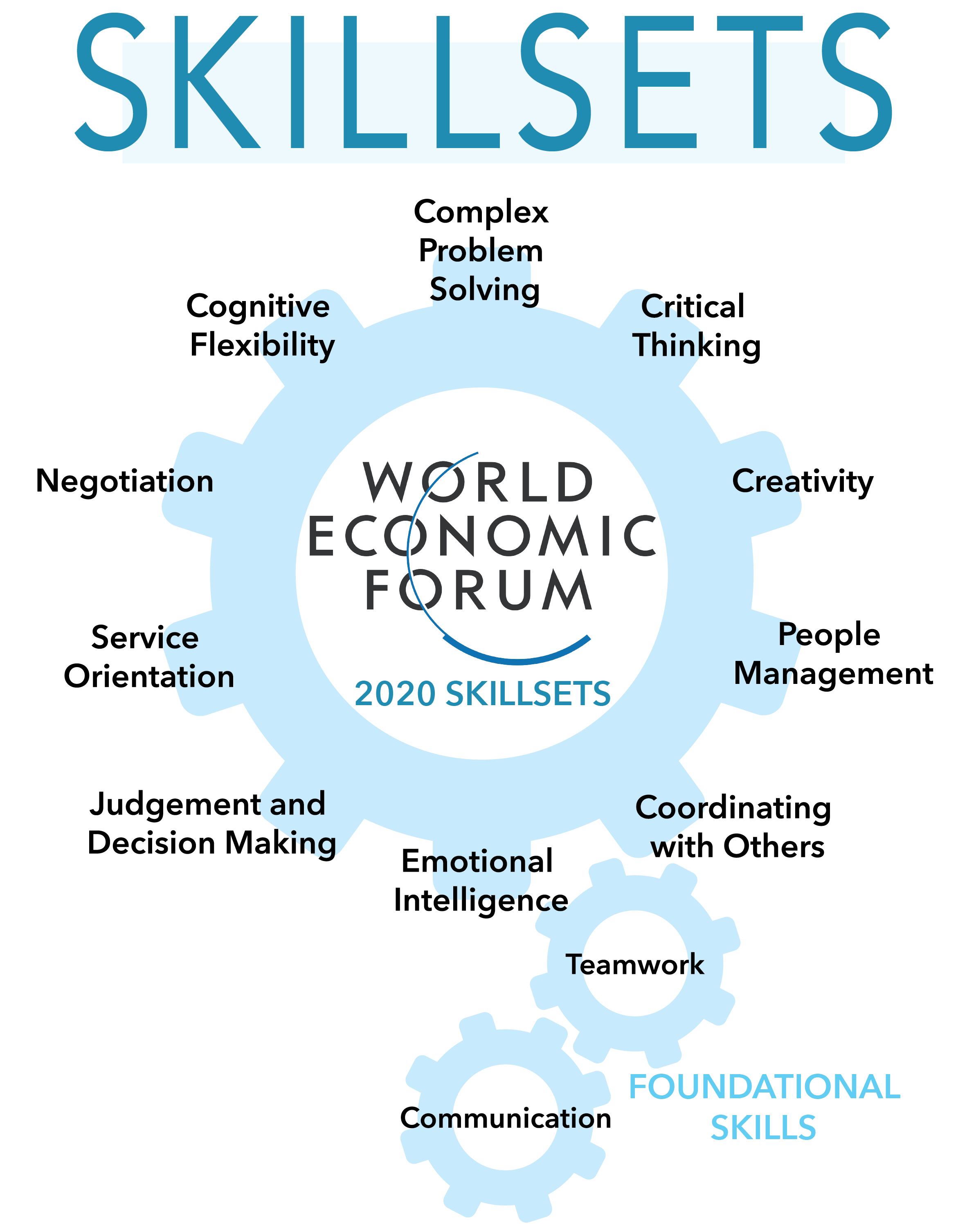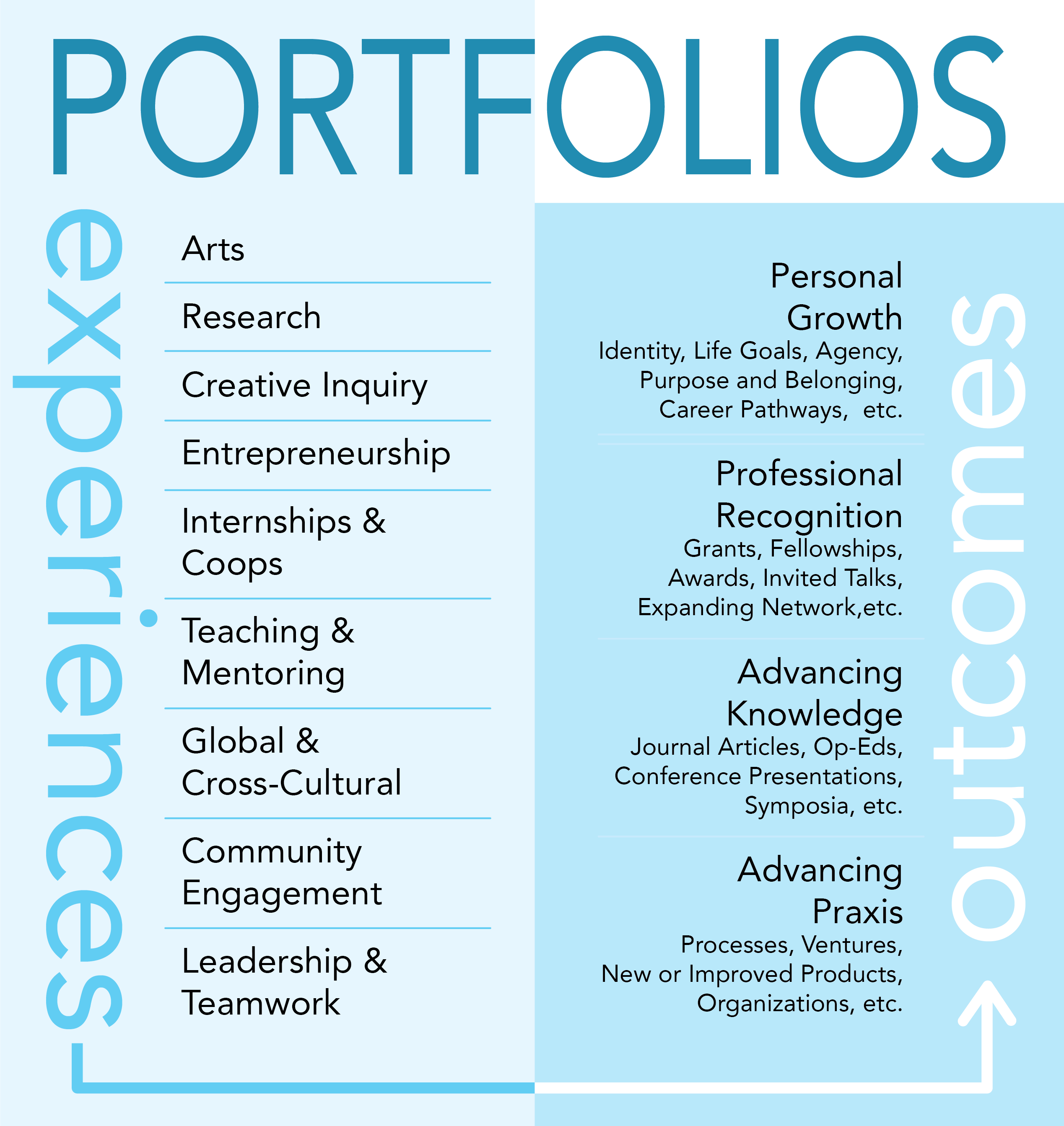Mindsets + Skillsets + Portfolios
We believe that the emergent sum of mindsets, skillsets, and portfolios leads learners to a new state of being where they have a new identity, improved agency and self-efficacy, a higher level of consciousness, and a deeper sense of purpose and belonging in the world.

On a more practical level, these skillsets, mindsets, and portfolios help students distinguish themselves as they aspire for highly competitive jobs, graduate and professional education at the best universities, and prestigious fellowships. Students’ mindsets trump their skillsets. Once students start believing and thinking, and find their spark, they can learn whatever they wish to learn and build the skillsets needed to solve the problems they are passionate about. While mindsets are about believing and thinking, skillsets are about learning and applying.The mindsets and skillsets of interest to our office are relevant to students from every discipline and every career aspiration. However, the proof, as they say, is in the pudding: students’ portfolios bring to life, and provide tangible evidence of, their skillsets and mindsets.
Mindsets of Interest
There is ample evidence that a growth mindset rooted in the belief that students control their own abilities and can learn and improve over time is pivotal to success. When placed in inspiring spaces that foster open-ended inquiry, students display an infectious elasticity in thinking and a bias for self-directed and collaborative action to advance their own learning and impact in the world.

The mindsets we seek to cultivate in our students include habits of the mind like a creative inquiry-led approach that encourages students to ask questions and seek answers, a human-centered approach rooted in the philosophy of design thinking, an entrepreneurial approach that encourages them to continually strive to create value, a systems approach that enables them to see the forest and the trees, and a data-driven and evidence-based approach that frees them from the shackles of dogma and attunes them to responsive feedback systems to make better decisions and enact change. Other mindsets are about change-making in the broader world. We want students to be global citizens who can envision the future, who can build coalitions and lead themselves and others in accomplishing that higher sustainable equilibrium. In a gig economy that is becoming increasingly value-driven and outcomes-focused, we want our students to master the art and science of execution. Getting stuff done starts with the right mindset...of getting stuff done!
Skillsets of Interest
Lehigh aspires to produce ‘T’ shaped people who are competent in their chosen disciplines and have a strong broad education that aligns with the needs of the future workforce. As pointed out by the NACE career-readiness framework as well as many other studies, (oral and written) communication and teamwork are foundational skills that every student must possess.

The World Economic Forum asked human resources and strategy officers from leading global employers what the current shifts mean, specifically for employment, skills and recruitment across industries and geographies and developed a framework called the Skillsets of 2020. At Lehigh, this framework and the identified skillsets are well-aligned with our culture and ethos. As a student-centered research university with a strong culture of theory to practice, complex problem-solving, critical thinking, and creativity are the top three "horizontal" skills that we want students from every major (vertical) to possess. Finally, it must be pointed out that all these mindsets and skillsets are continua and students (as well as faculty) are on a journey and strengthen their competencies with their experiences and (mis)adventures.
Portfolios of Interest
Student portfolios capture creations and accomplishments through academic endeavors as well as co-curricular and extra-curricular pursuits. As students commence on their educational journeys, portfolio elements may include course projects, research papers, and other artifacts that are graded by the professor. As they engage in increasingly rigorous and challenging experiences, their portfolios start featuring journal articles, conference presentations, products, services, and creative works deployed in the field and other artifacts that are validated and judged not by their professors but by the respective communities of practice and the world-at-large.

While personal growth is a key student outcome from experiential learning pursuits, professional recognition bestowed by external entities provides much-needed validation and distinction and further catalyzes students in their educational journeys. The ultimate portfolio elements and metrics of success are outcomes and artifacts that contribute to the cumulative knowledge base and advance praxis by solving real problems once and for all. The outcomes beyond the learning outcomes epitomize student excellence and preparation to enter the workforce and contribute to the circle of life.
